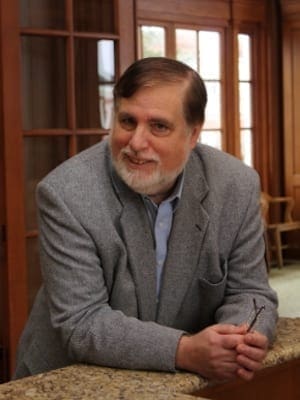Canadian Christianity is often cast in the shadow of its American counterparts. But it also has its own provocative, self-generated contributions.
A recent example is Gretta Vosper’s “With or Without God: Why the Way We Live Is More Important Than What We Believe.” John Shelby Spong wrote the forward to this book that has virtually swept the country as a best-seller.
Vosper is a United Church of Canada pastor in the Toronto suburbs. Educated at Queens Theological College, known for its progressive, feminist orientation, Vosper has pioneered the Canadian Centre for Progressive Christianity, a practicing congregation (150 members), a think tank and a resource bank for those who are weary of traditional liberal Christianity.
Vosper’s book will unsettle even the most open mind. She represents a type of Christian called “post-theist.” It’s hard to imagine how (or why) anyone would care to use the label Christian while denying the necessity of a personal, transcendent god, but Vosper does. This is no mockery of Christianity or religion as in Christopher Hitchens, Richard Dawkins or Sam Harris, but a searching critique from within by one who has tried to make the language and rituals work and come up empty-handed.
Her thesis is simple. The church must shift from its time-bound biblical and doctrinal base to a broader base of timeless, life-enhancing values that emphasize humanitarian and ecologically sound ideals: ethics over doctrine, so to speak. She is influenced by John A.T. Robinson, Jon Sobrino, C.S. Lewis, Northrup Frye and Paul Tillich in asking the questions and arriving at her nontheistic answers.
For the theologian and biblical scholar, Vosper denounces creeds, the “word of God for all time,” eschatology and the quest for the historical Jesus. This disenchanted pastor thinks that the time has come for the clergy to be honest with those in the pew.
The truth has been known for a century, she says, with respect to the authority of Scripture, the claims of Jesus and the real value of allegorical language. But clergy have been so fearful of reprisal from congregational leaders who want to hear the old beliefs and practice the old ways that they preach at a comfort level well beneath their own integrity. Harshly, Vosper asserts that “we started by creating the concept of God. Then we created the concept of Christ. We created our doctrine and dogma, our traditions and holy stories. We created church.”
Church historians bear part of the failure of Christianity as well. They have failed adequately to evaluate Constantinian Christendom, institutions, rituals and hierarchies. They have not fully appreciated the meaning of the evolving nature of a religious tradition, nor the church’s design to protect itself.
With congregations shutting down or being decommissioned as it is formally called, Canadians are paying attention to the demise of church culture.
Leonard Sweet’s evangelical repackaging as well as Marcus Borg’s retrofitting of the faith through the Jesus Seminar are American answers that don’t work north of the border. A combination of pluralism, media attacks on church corruption, a strong humanist ethics and a lack of high-profile Christian higher education have left their mark on a nation that was by its own interpreters more inherently Christian than the United States.
What will come next?
I’m not sure it will fulfill Vosper’s expectations. She is focused upon those nominal Christians that still like the sound of a pipe organ, love the color of the Christian seasons and have a sacramental and ritualistic need. So she finds ways to change language, redirect spiritual energies, and reclaim koinonia in the symbolic name of “Christianity.” Left out are the youth culture, the disinterested, the abused and the learned.
Our generation is something like Karl Barth’s 1920s after the first death of the liberal tradition; her solution is far less respectful than Barth’s neo-orthodoxy. We will likely lose the mainline and its offspring, especially if statistics have it right that the Anglicans, Uniteds, Presbyterians, Roman Catholics and Convention Baptists have all declined precipitously in the last half century.
Is there any new group as yet unidentified that will be “baptized for the dead”?
Bishop Spong called this book provocative and hopes that people will read it because most people do not understand that organized religion will die of boredom long before it dies of controversy.
It is a wake-up call that we really do recognize that a post-Christian era has begun and has solidly taken hold in Canada. It is also a stern warning to both Canadian and American evangelicals not to repeat history.
William H. Brackney is the Millard R. Cherry Distinguished Professor of Christian Theology and Ethics at Acadia University and Acadia Divinity College in Nova Scotia.

